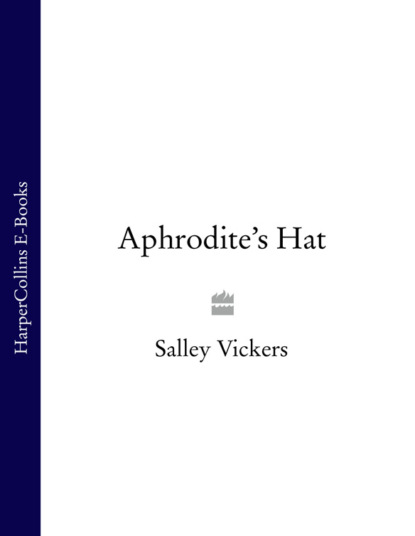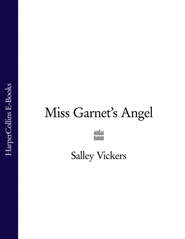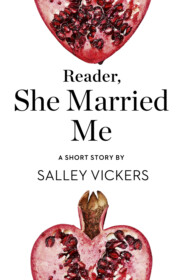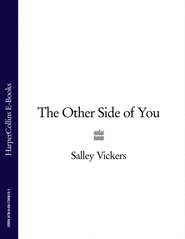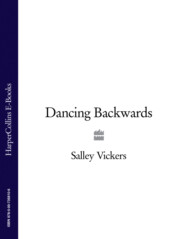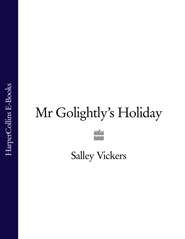По всем вопросам обращайтесь на: info@litportal.ru
(©) 2003-2024.
✖
Aphrodite’s Hat
Автор
Год написания книги
2018
Настройки чтения
Размер шрифта
Высота строк
Поля
In a moment of unspoken agreement, they had stopped and were looking out over the sea. The slate surface shimmered provocatively under the beam of the lamps on the long posts and the diffused lights of the windows of the bungalows, way up on Fulborough Heights.
‘She say I left her, then?’ the man asked again. There was an undertow of something in his voice Charlie recognised.
‘Didn’t you?’ Any notion that there could be doubt over this was fantastic. He had been raised in the sure and certain knowledge that he had an absconding father. And yet there was that pleading animal tone.
‘She chucked me out.’
‘What for?’ Relief that there might be another explanation for his father’s dereliction struggled with the stronger fear that he was going to be asked to accommodate worse news.
‘Didn’t rate me, I guess.’
They had reached the farthest point of the beach’s curve and, with the same accord with which they had stood surveying the dappled waves, the two men turned to walk back the way they had come. Charlie dug his hands in his pockets against the wind, conscious as he did so that he was adopting a pose he had absorbed from films. The gesture was a feeble understudy for the words needed to voice what he was feeling.
‘Your dad was a right bastard,’ he had heard his mother declare time and again. ‘Walked out and left me with a bawling kid to cope with. Mind you,’ she had added, when the black mood was on her, ‘the way you go on, you’d have driven him out even if he hadn’t gone before.’
‘Your mum’s mum, your gran, wanted me to stay,’ the man who was his father resumed. ‘Maybe I should’ve. I’ve often wondered what was right.’
‘Yes,’ Charlie said. ‘Maybe you should.’ As he said it he was aware of a dreadful gratitude emanating from the presence beside him. It seemed bizarre to make someone glad to learn that they had not done what you ardently wished they had done.
‘You missed me, then?’ The voice was now unquestionably wistful.
‘Yeah, I missed you,’ Charlie consented. He felt sick at his own words.
‘Missed’ wasn’t the size of it. He had mourned his absent father, fiercely, inconsolably, endlessly, desperately. Since he could remember thinking his own thoughts, missing his father had taken the lion’s share of his inner life. It was, he suddenly recognised, to seek his father that he had made his way to London, for the only way to bear the loss had been to conjure that impossibly glamorous figure, whose flight it was possible to condone on grounds of innate superiority. He could never have envisaged this hesitant man with the unsettling squeak and tremor in his voice. Sharply, fervently, he wished this newly recovered parent to the bottom of the sea.
‘And you are a fisherman?’ he said aloud in response to a solicitude he had come, over the years, to resent but had never had the heart to forswear.
‘Was is the operative word. I don’t do anything now. No work for us fisher folk these days, what with the EEC.’
The note of whimsy was terrible. An unemployed, down-at-heel, shabby fisherman was no substitute for an insouciant profligate high-hearted deserter. Charlie, acute to personal danger, braced himself for further unwanted revelation.
‘I live with a decent woman. Pat. She sees me right. Works up at the local pub and helps out with the B and B there. I do odd jobs for them too. We get by. What do you do?’
‘I’m an actor.’ Pause. ‘Well, trying to be. But …’
‘It’s hard, I know. You’ve got the voice.’
‘Have I?’ Charlie felt a shot of excitement at this unexpected encouragement.
‘A good voice, you’ve got. I heard it straight away. I had a voice once. Someone put me in a film. Said I was a natural. Offered to take me to Hollywood.’
‘Really?’ Suspicion of this hint of redeeming enterprise in his lost parent hovered over relief.
‘I’m not a liar,’ Charlie’s father said placidly. They had reached the beach hut again and he stopped and took out a packet of cigarettes. ‘Untipped, they are. Got the habit on the boats.’
‘Hard to get, aren’t they now?’
‘I’m not a liar,’ his father repeated, cradling the match with which he lit Charlie’s cigarette with a big hand. Red lobster hands. ‘I didn’t leave your mum. She didn’t want me. Don’t blame her. But I shouldn’t have left you.’
Charlie stood, looking out at the glimmer of the receding tide, pulling on his father’s cigarette. A strand of tobacco had stuck to his lip. The words he had longed to hear, had rehearsed to himself so often, in bed at night, crying himself to sleep after his mother had been having a go, ‘I shouldn’t have left you’, bounced away into the unpitying darkness. He felt nothing. Not even contempt. It was a poor sort of an offering from a prodigal father.
‘I’m glad you’ve come to see her, anyway,’ he said at last.
‘I’d’ve come sooner if you’d asked.’
‘Yes,’ Charlie said. ‘I know. I should have asked you before.’ It was a kind of acknowledgement between the two of them.
‘Better late than never,’ said his father. Through the darkness Charlie could just make out that he was grinning. ‘Shall we go in my car?’
‘I don’t have one. I came by bus.’
Walking through the hospital corridors, which smelled of nothing normal, Charlie looked at his father for the first time. Broad shoulders, middle height, hair once dark, now mostly grey, a face which might have been handsome once but had settled into hangdog, jeans, donkey jacket, with a sprinkling of dandruff about the shoulders, visible white vest, plaid wool shirt, brown suede shoes, wrong shade for the rest of what he was wearing. A model of unexceptional ordinariness. Except that he was the father he had never had – and at the same time he was not. He was quite another father. A stranger.
‘I bought her a present,’ Charlie’s new father said, producing a box from his pocket. ‘Roses chocolates. Too late for Christmas, but she used to like Roses. Mind you, she liked hard centres best, Jen, but I thought in the circumstances soft centres might go down better.’
Charlie did not say that his mother was past eating anything, even soft centres. Nor did he consciously form the thought, but in the region of his mind, which as yet had formed no words, he became aware that he was in charge of these two beings, his parents. An access of violent tenderness waylaid him and he touched his father’s arm. ‘She’ll be glad you remembered.’
‘Think so?’ The blue eyes were horribly beseeching. A hurt child’s eyes. ‘Bit late for Christmas but …’
‘I’m sure so,’ Charlie said, untruthfully. He was not at all sure how his mother would take this. It had been an impulse to follow up the address he had found in his gran’s oak bureau when he cleared it after she died. It was written on a corner of torn-off card, which, from the faint trace of glitter, and the suggestion of a robin’s breast, looked as if it had been sent one Christmas. He had guessed at once whom the card had come from.
They were approaching his mother’s ward, which, in deference to her condition, was shared by only two other patients. ‘Both on their way out’ as his stepfather had observed. Ivor, Charlie guessed, was counting his wife’s definitely numbered days to the time he could settle down to widowerhood and a story of suffering nobly borne.
Charlie’s mother’s was the first bed in the ward and, as was customary now, she was behind drawn curtains, as if she was rehearsing what it would be like to have the curtains drawn for good.
‘Mum?’
‘What? Oh, it’s you. You’re back, then.’
‘Mum, I’ve brought a visitor.’
Across the face, once pretty, now bleached by years of discontent and disappointment, and further diminished by drugs and pain, flashed a sudden enlivening angry interest. ‘Who is it?’
Charlie’s father stepped forward, jolting the bedside cupboard so that the jug of water on it rocked perilously. ‘It’s me, Jen.’
‘Mind that jug. Who’s “me”, when you’re at home?’
But she knew. And Charlie knew that she knew. And in that instant he knew that he had done something remarkable. Unquestionably, unmistakably, his mother was pleased. Relief rushed in on him, warming him like a double Scotch on an empty stomach.
‘It’s Jeff, Jen.’
‘My God!’
‘No, your Jeff!’ For a moment, there was something that Charlie saw in his father’s face. Charm.
‘I don’t believe it!’
‘All right if I sit down, Jen?’





